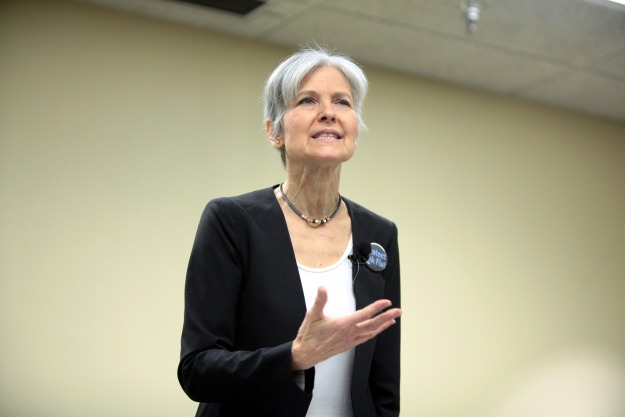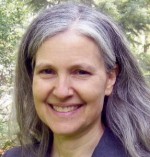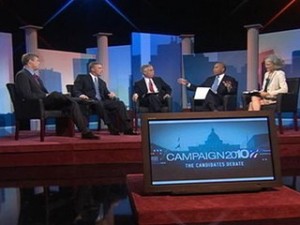
Tulsi Gabbard earlier this year. Photo (cc) by Marc Nozell.
Van Jones is ripping Hillary Clinton for suggesting that Russian interests are seeking to use Tulsi Gabbard’s fringe presidential campaign to divide Democrats and help President Trump get re-elected. Here’s what Jones said on CNN:
If you’re concerned about disinformation … that is what just happened, just throw out some information, disinformation, smear somebody. She is Hillary Clinton. She’s a legend. She’s going to be in the history books, she’s a former nominee of our party, and she just came out against a sitting U.S. congresswoman, a decorated war veteran, and somebody who’s running for the nomination of our party with a complete smear and no facts.
In fact, there was nothing novel about Clinton’s contention. NBC News reported on Russian interest in Gabbard’s candidacy last February (via Sue O’Connell) in a detailed investigative report that begins:
The Russian propaganda machine that tried to influence the 2016 U.S. election is now promoting the presidential aspirations of a controversial Hawaii Democrat who earlier this month declared her intention to run for president in 2020.
An NBC News analysis of the main English-language news sites employed by Russia in its 2016 election meddling shows Rep. Tulsi Gabbard of Hawaii, who is set to make her formal announcement Saturday, has become a favorite of the sites Moscow used when it interfered in 2016.
Now, I realize that CNN talking heads are required to speak many words, and sometimes things go haywire. But for Jones not to be aware of longstanding concerns about Gabbard and Russian propaganda is unacceptable.
Here is what Clinton said on David Plouffe’s podcast, in which she doesn’t name Gabbard but clearly points to her:
I think they [the Russians Republicans] have got their eye somebody who’s currently in the Democratic primary and are grooming her to be the third-party candidate. She’s a favorite of the Russians. They have a bunch of sites and bots and other ways of supporting her so far.
Clinton also said Jill Stein, who ran a third-party campaign in 2016, was a “Russian asset,” which is an uncontroversial assertion to anyone who paid attention. As with Gabbard, we can’t know what Stein was thinking, but it’s simply a fact that Stein’s candidacy was pushed by RT and other elements of Russian’s propaganda machine.
What Clinton said was the opposite of fake news, and Jones should acknowledge it. Then again, liberal commentators like Jones have a huge incentive to rip other liberals so they will be seen as “fair.” And the Clintons have been everyone’s favorite punching bag for such exercises for nearly 30 years.
Correction and update: Thanks to this Wall Street Journal story and Dylan Smith’s transcript of the Clinton-Plouffe exchange, we now know that Clinton said Gabbard was being groomed by the Republicans, not by the Russians, and that she did not call Gabbard a “Russian asset” (that was reserved solely for Stein). So Jones was even more unprepared and offbase than I originally thought.



